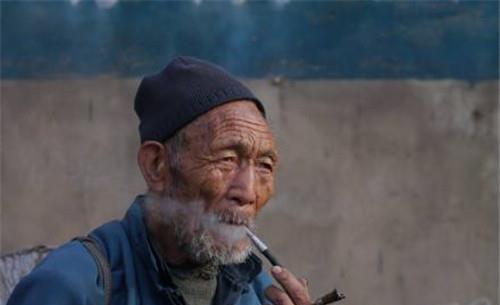As the song in "Love Me China" -- "Fifty-six constellations, fifty-six flowers, fifty-six brothers and sisters are one family." There are 56 ethnic groups in China that have long been common sense rooted in the hearts of the Chinese people since childhood, of which the Han family is the dominant family, and the other 55 belong to ethnic minorities.

This is the final result of the great integration of nationalities in China's history of more than 2,000 years, and today, all ethnic minorities and Han ethnic groups live together on the land of China, are in harmony and fraternity with each other, and jointly build the motherland to prosper.
However, in fact, the 56 ethnic groups cannot fully cover all the population of China, and there are a small number of people who do not belong to any of the 56 ethnic groups, and even the ethnic column on the ID card has its own title. This group is the green people.
The Wearers are an unidentified ethnic group that is mainly concentrated in the northwestern region of Guizhou. There is much controversy about its origins, and until now, folklore experts have not come to an accurate conclusion, which is the main reason why the people of Qing have not yet been divided into any ethnic group.
At present, regarding their origins, this statement is widely circulated. Legend has it that in the early years of the Ming Dynasty, although Zhu Yuanzhang openly unified the whole country, but because the Emperor Tiangao in the southwest region was far away, in theory, Zhu Yuanzhang had never sent troops to reach there, so there was no way to recover. Later, Zhu Yuanzhang ordered the transfer of 300,000 Ming troops to the southwest to see the situation. By the way, stay there and strengthen the centralized rule in the southwest region.
The Ming army that arrived there did not encounter any strong resistance forces, and the southwest region still inherited the toast system of the Yuan Dynasty. This is a form and system of local political power organization specially established by the ancient imperial court for ethnic minority areas, which began in the Yuan Dynasty. "Toast", also known as "Tuguan", is equivalent to the highest leader of ethnic minority tribes and generally adopts a hereditary system.
They ruled in separate areas, did not form any climate, and did not have the strength to compete with the Ming army. As soon as the Ming army came, they hardly resisted and directly submitted to the Ming Dynasty.
Those Han Ming troops who remained in the southwest region began to intermarry and integrate with the local ethnic minorities, and the cultural and life boundaries between the two slowly disappeared. Because the assimilation ability of the Han nationality is quite strong, without exception, these ethnic minorities are eventually sinicized.
But they are not quite the same as the Han people of the Eight Classics, and one of the things that is particularly prominent is that women wearing green people do not have to wrap their feet, which is also the most important way to distinguish them from the Han people.
It is also due to the integration of a considerable number of local ethnic minorities living customs, this Ming Dynasty migration of the Han people eventually evolved into a "four different" ethnic group, they are not like the local primitive ethnic minorities, nor like the Han people, but formed a new tribe, that is, today's wearing Green people.
Why is it called "wearing green"? A large part of the reason is that they especially like to wear blue clothes, wearing green women often wear blue and blue stitched clothes, while young girls wear all blue or all blue clothes, in short, it looks like a piece of blue. Therefore, they also got the name "wearing green people".
Today, the wearing green people have taken root in the land of China for more than 600 years, and at the time of the fifth census, their number was as high as 670,000, even more than the population of some ethnic minorities today.
To this end, the green wearers have submitted an application to become a separate ethnic minority. However, due to the fact that they have not formed their own language and writing in history, and they are still descendants of the intermarriage between the Han and ethnic minorities in terms of tracing the roots, they only retain some of their own characteristics, and they cannot constitute the historical conditions and basis for ethnic judgment, so they have not been approved.
However, as their cries grew louder. In 2003, the State adopted a compromise approach, confirming its special status as a young man. In the ethnic determination on the IDENTITY card, they are not naturalized to the Han nationality or any of the southwest ethnic minority groups, but they are written separately with "wearing green people", which is also the reason why their ID cards are different now.
In fact, whether it is ethnic minorities, wearing green people, or Han nationality, everyone is an indispensable part of the Chinese nation. They all share the same goal, that is, to work hard to revitalize the great Chinese nation. Readers, are you right?